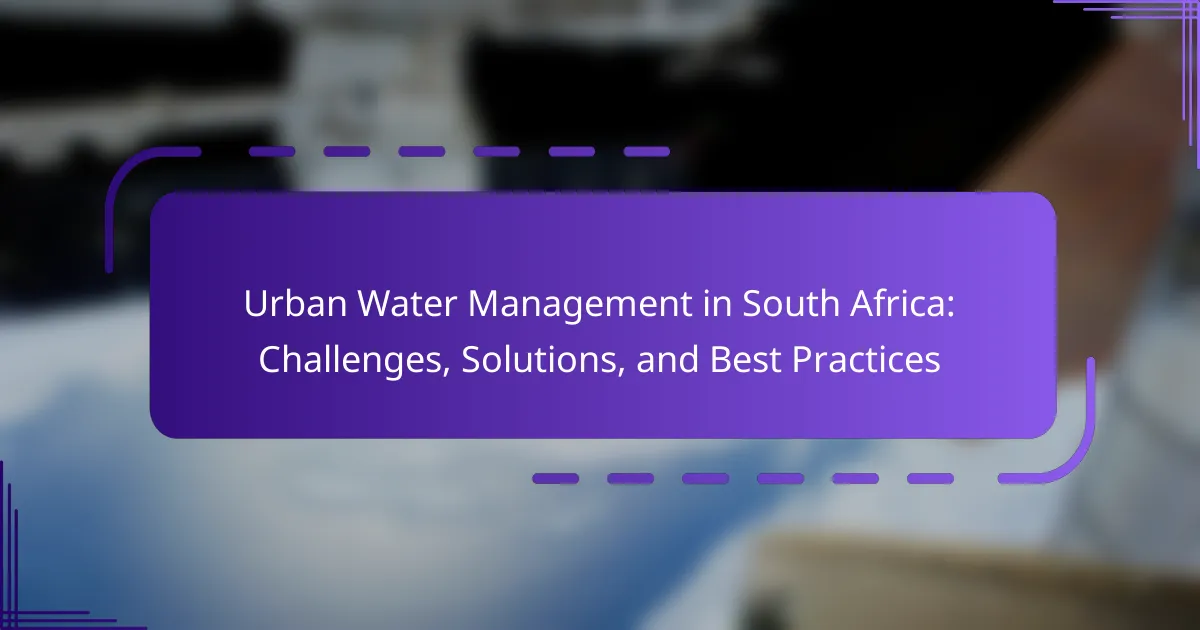Urban Water Management in South Africa faces significant challenges, including inadequate infrastructure, water scarcity, and pollution. Aging water systems lead to substantial water losses, while climate change and population growth exacerbate water scarcity. Pollution from industrial and agricultural sources further compromises water quality, and socio-economic disparities hinder equitable access. To address these issues, effective solutions […]
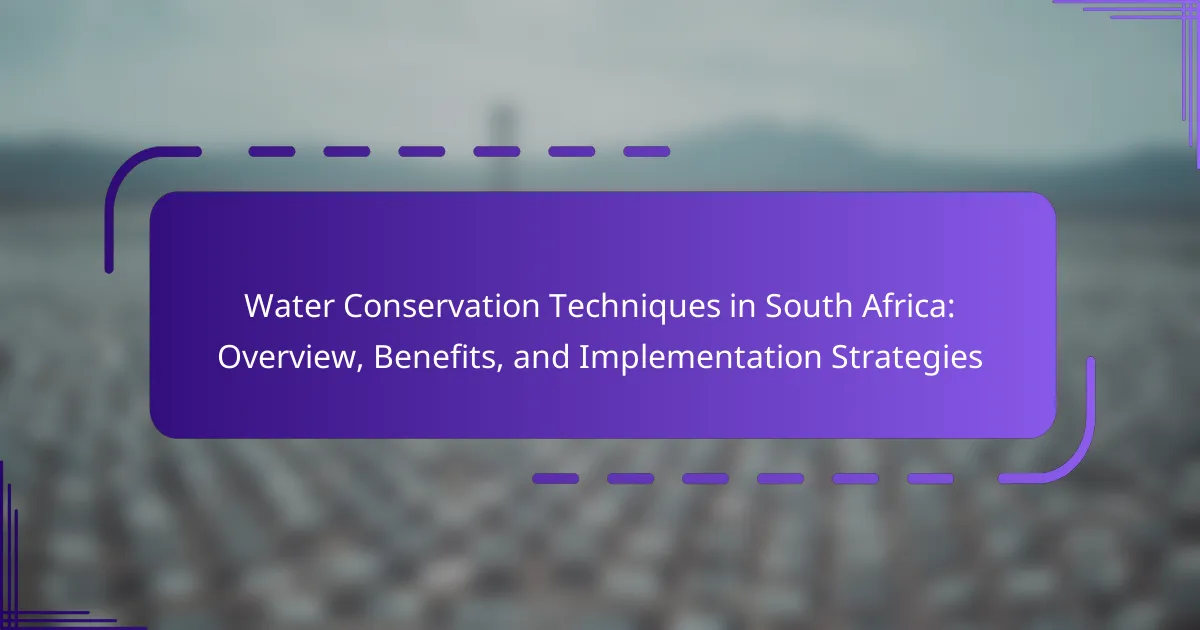
Water Conservation Techniques in South Africa: Overview, Benefits, and Implementation Strategies
Water conservation techniques in South Africa are critical in addressing the country’s severe water scarcity challenges, exacerbated by prolonged droughts, urbanization, aging infrastructure, pollution, and climate change. Key methods include rainwater harvesting, greywater recycling, and efficient irrigation systems like drip irrigation, which can significantly reduce water usage and enhance agricultural productivity. The implementation of these […]
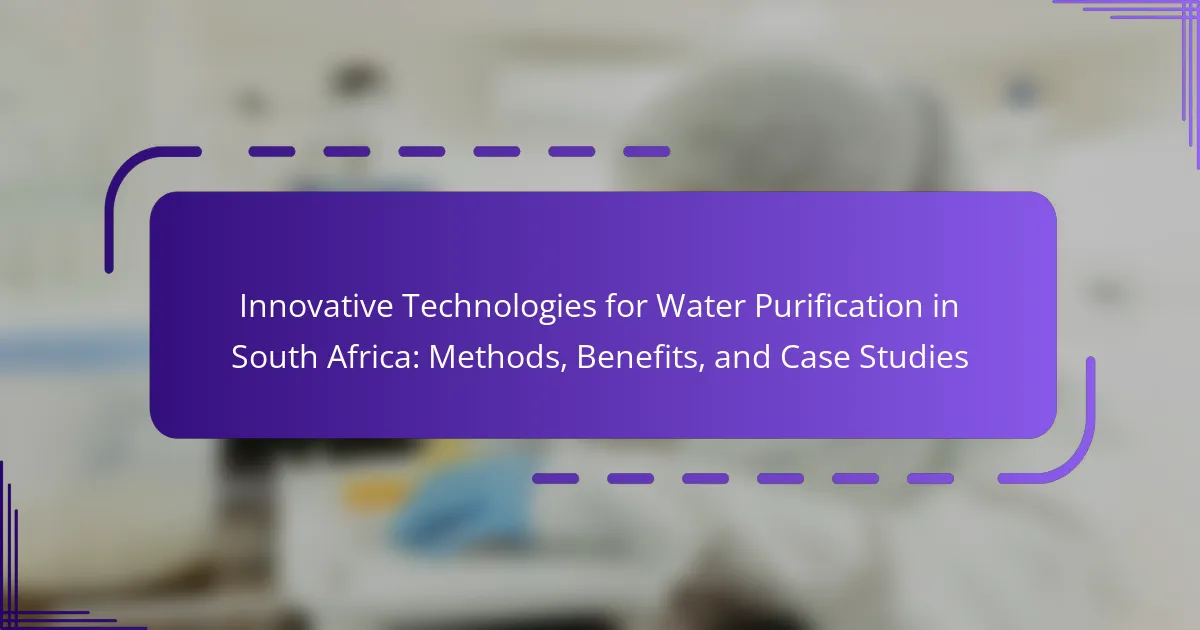
Innovative Technologies for Water Purification in South Africa: Methods, Benefits, and Case Studies
Innovative technologies for water purification in South Africa focus on methods such as membrane filtration, solar water disinfection, and advanced oxidation processes. These technologies aim to address critical water scarcity and quality issues, with increasing adoption in both rural and urban settings. Key challenges include high initial costs, limited financial resources, and technical expertise, which […]
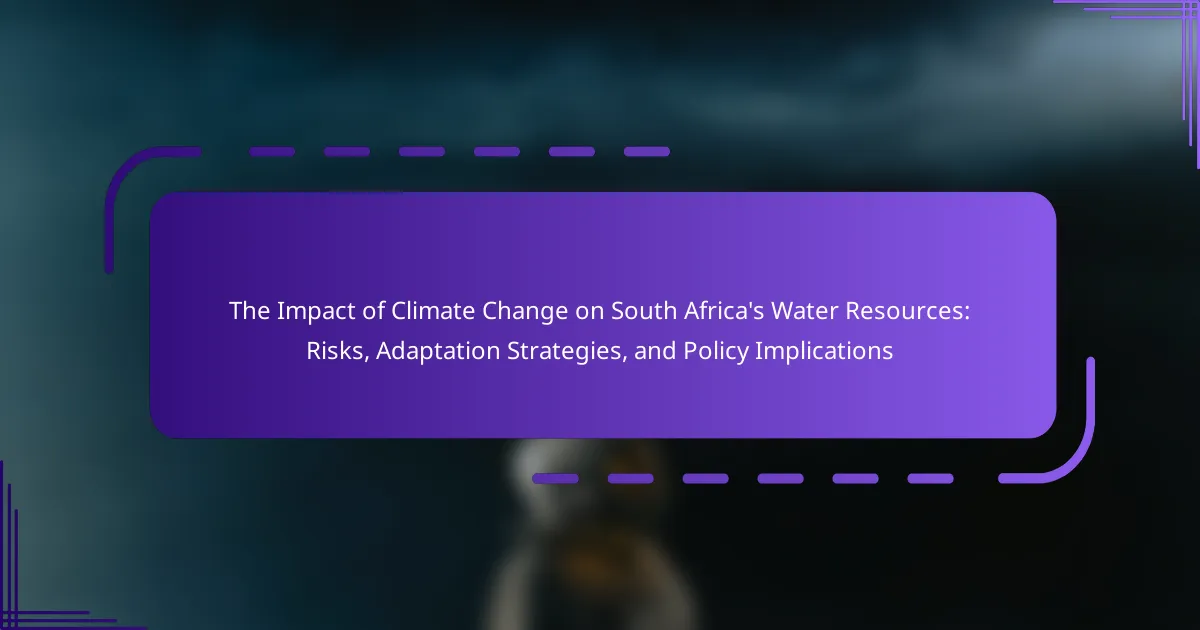
The Impact of Climate Change on South Africa’s Water Resources: Risks, Adaptation Strategies, and Policy Implications
Climate change is significantly affecting South Africa’s water resources, leading to increased temperatures and altered precipitation patterns that reduce water availability. The frequency and severity of droughts are rising, impacting both surface and groundwater supplies, which poses challenges for food security and ecosystems dependent on water. Adaptation strategies, such as improved water management practices, enhanced […]
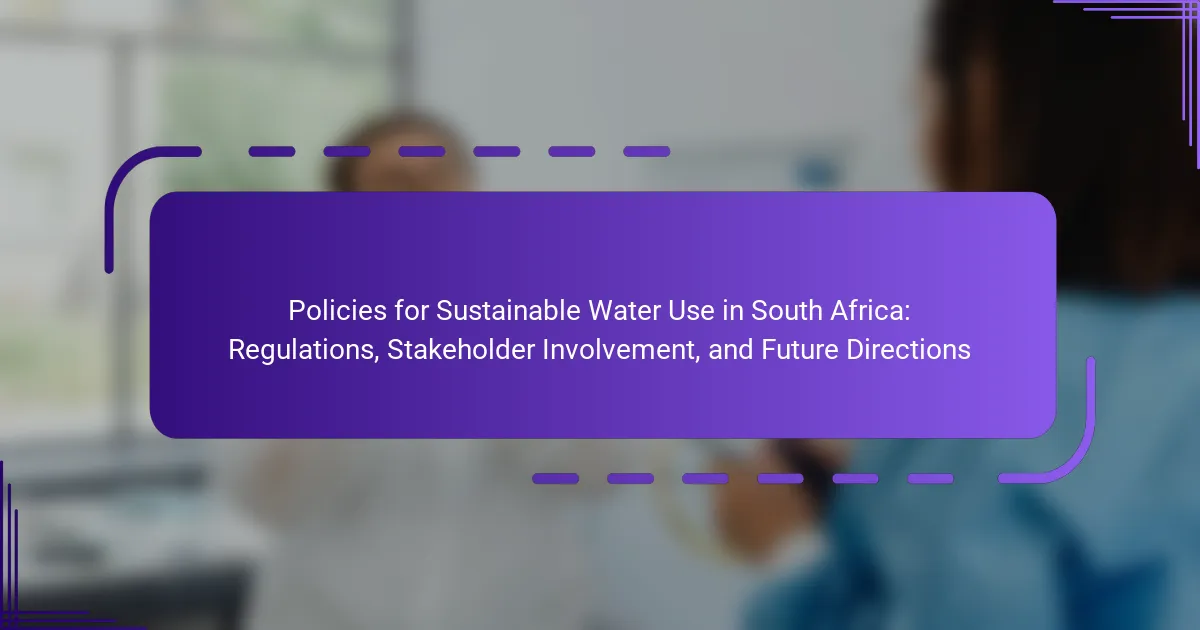
Policies for Sustainable Water Use in South Africa: Regulations, Stakeholder Involvement, and Future Directions
The primary entity of this article is the policies for sustainable water use in South Africa, specifically focusing on the National Water Act of 1998 and the National Water Resource Strategy. These policies are designed to promote equitable access to water, protect water quality, and ensure sustainable management of water resources. The article outlines the […]
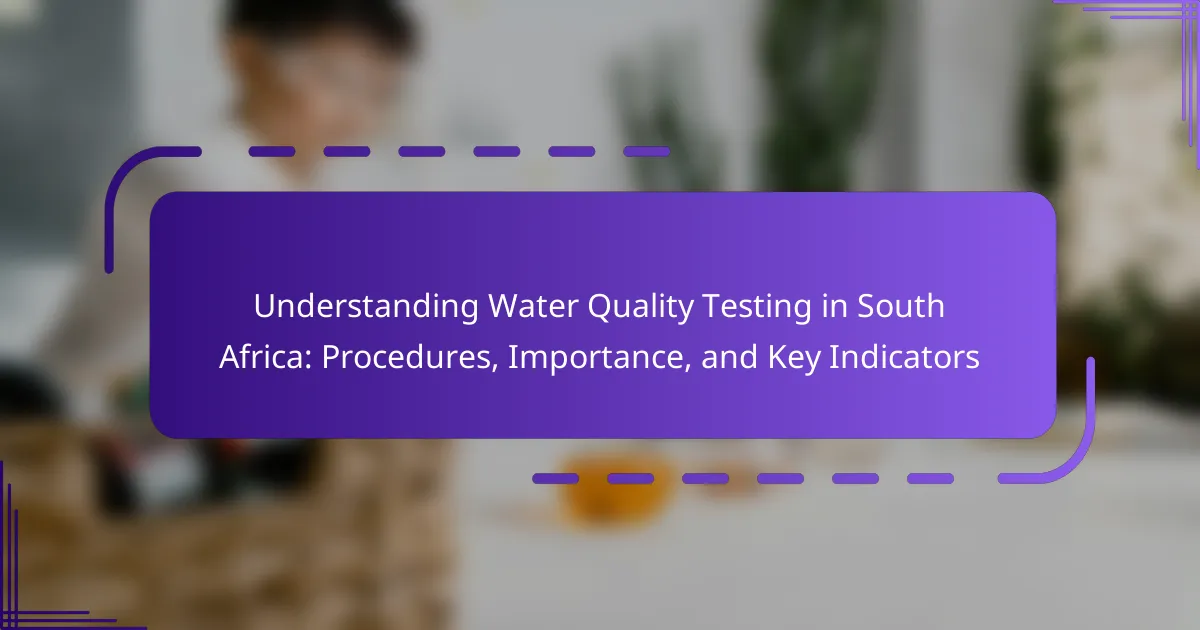
Understanding Water Quality Testing in South Africa: Procedures, Importance, and Key Indicators
Water quality testing in South Africa involves analyzing water to evaluate its safety and suitability for various uses, focusing on parameters such as chemical composition, biological contaminants, and physical properties. This process is crucial due to the country’s diverse water sources and varying pollution levels. The Department of Water and Sanitation oversees testing protocols to […]
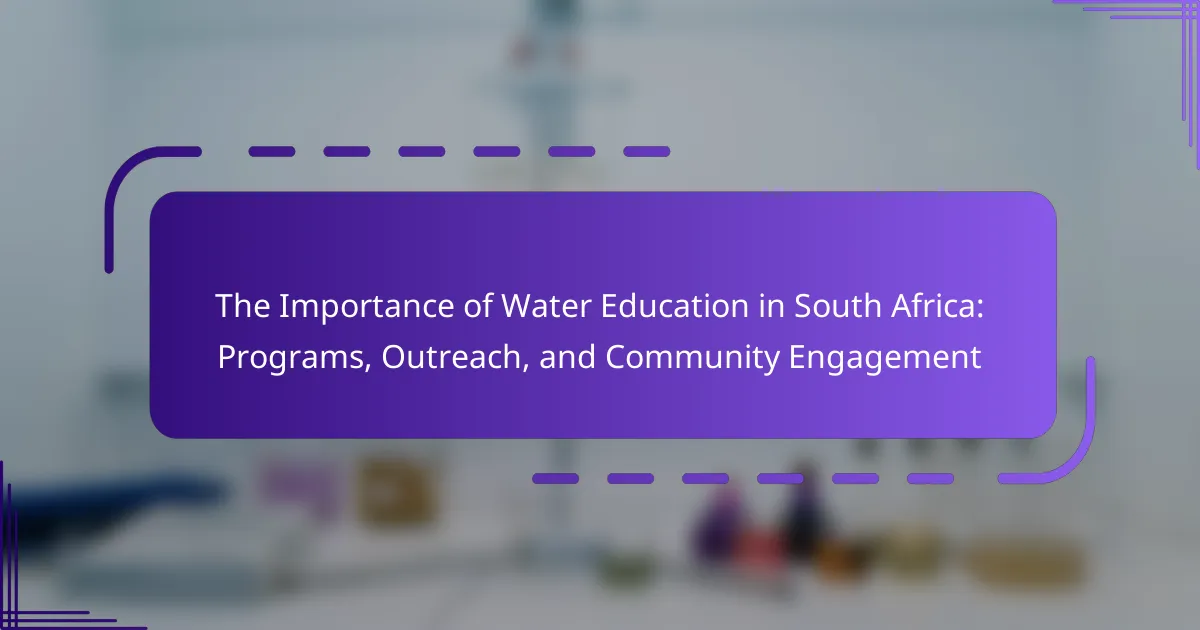
The Importance of Water Education in South Africa: Programs, Outreach, and Community Engagement
Water education in South Africa is essential for addressing water scarcity and promoting sustainable management practices. This article outlines the significance of educational programs that empower communities to understand the importance of water resources and the effects of pollution on water quality. It highlights the role of interactive workshops, school collaborations, and social media campaigns […]
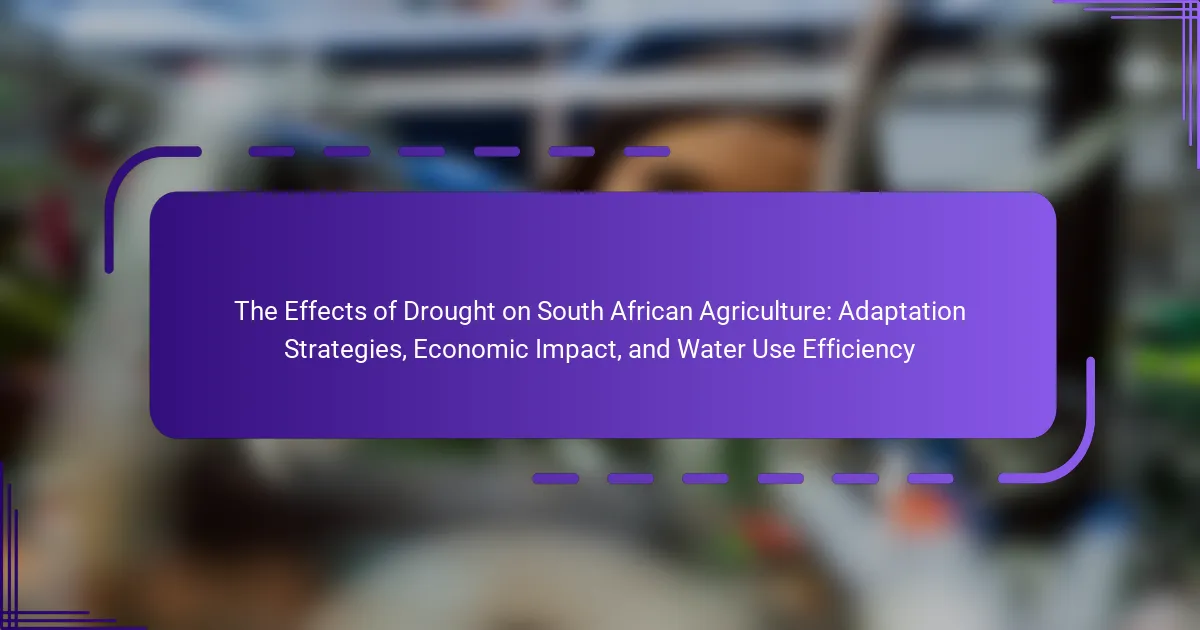
The Effects of Drought on South African Agriculture: Adaptation Strategies, Economic Impact, and Water Use Efficiency
Drought is a significant challenge for South African agriculture, adversely affecting crop yields and livestock productivity, leading to water scarcity and food insecurity. The agricultural sector, which contributes approximately 2.5% to the national GDP, faces severe economic losses due to reduced yields, with major crops like maize and wheat experiencing potential reductions of up to […]
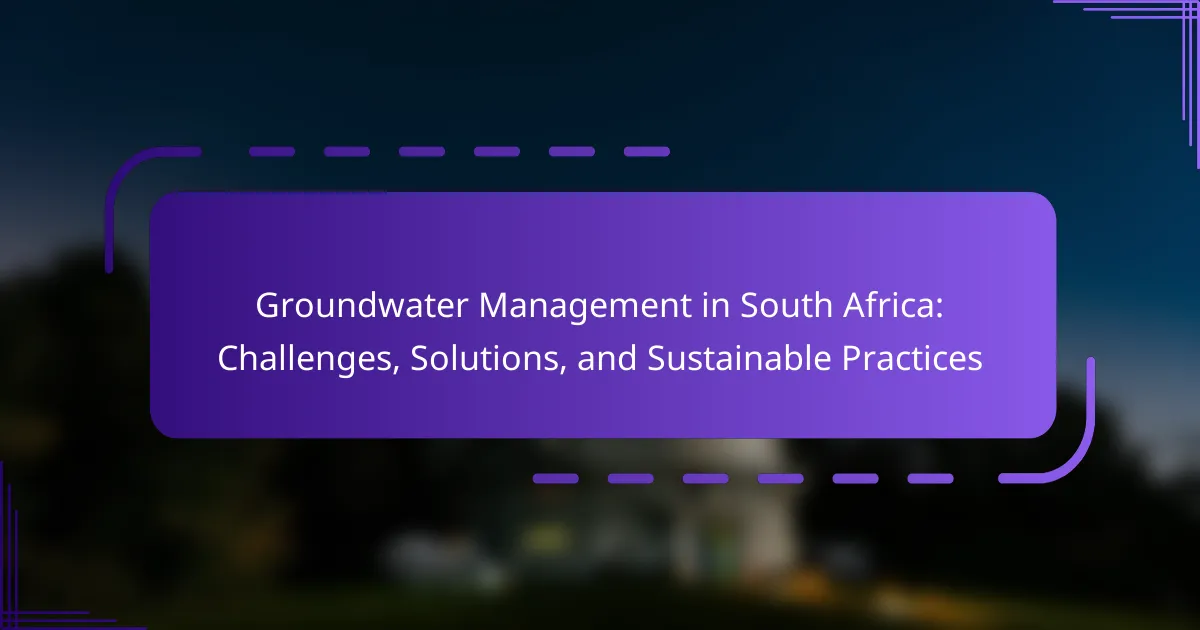
Groundwater Management in South Africa: Challenges, Solutions, and Sustainable Practices
Groundwater management in South Africa involves the systematic assessment, monitoring, and protection of groundwater resources to ensure their sustainable use. With approximately 60% of the population relying on groundwater for drinking and agriculture, the country faces significant challenges, including water scarcity and pollution. The National Water Act of 1998 serves as a legal framework that […]
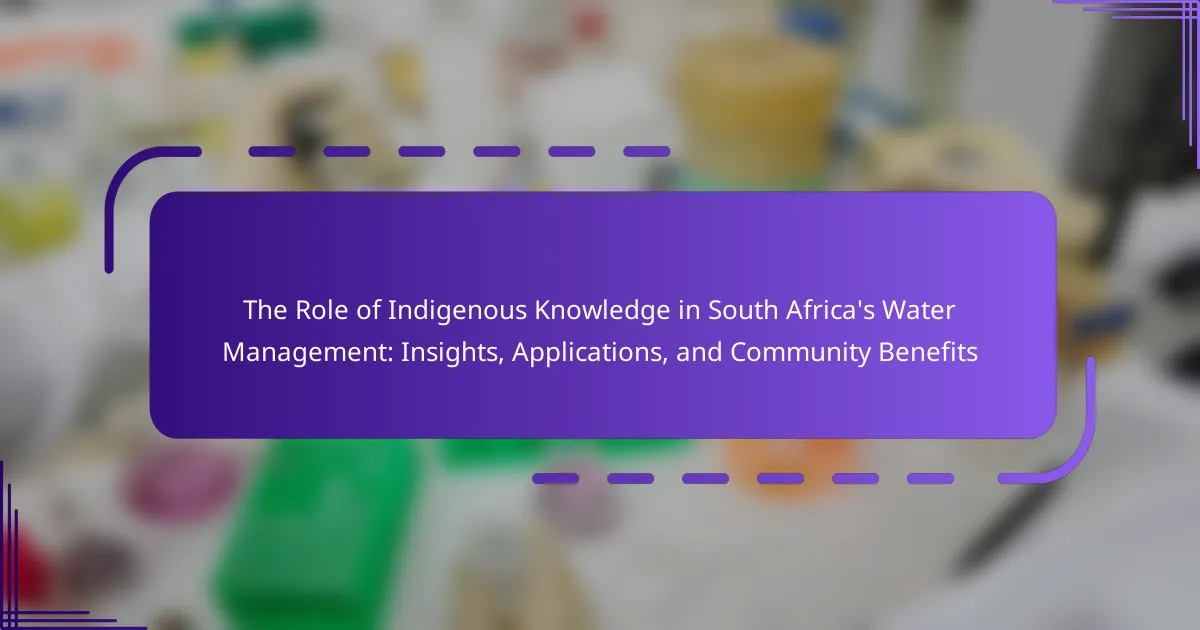
The Role of Indigenous Knowledge in South Africa’s Water Management: Insights, Applications, and Community Benefits
Indigenous knowledge is a critical component of water management in South Africa, encompassing traditional practices and beliefs that have been passed down through generations. This knowledge provides valuable insights into local ecosystems and water sources, promoting sustainable water use and conservation efforts. Research indicates that integrating indigenous practices, such as traditional irrigation and water harvesting […]
